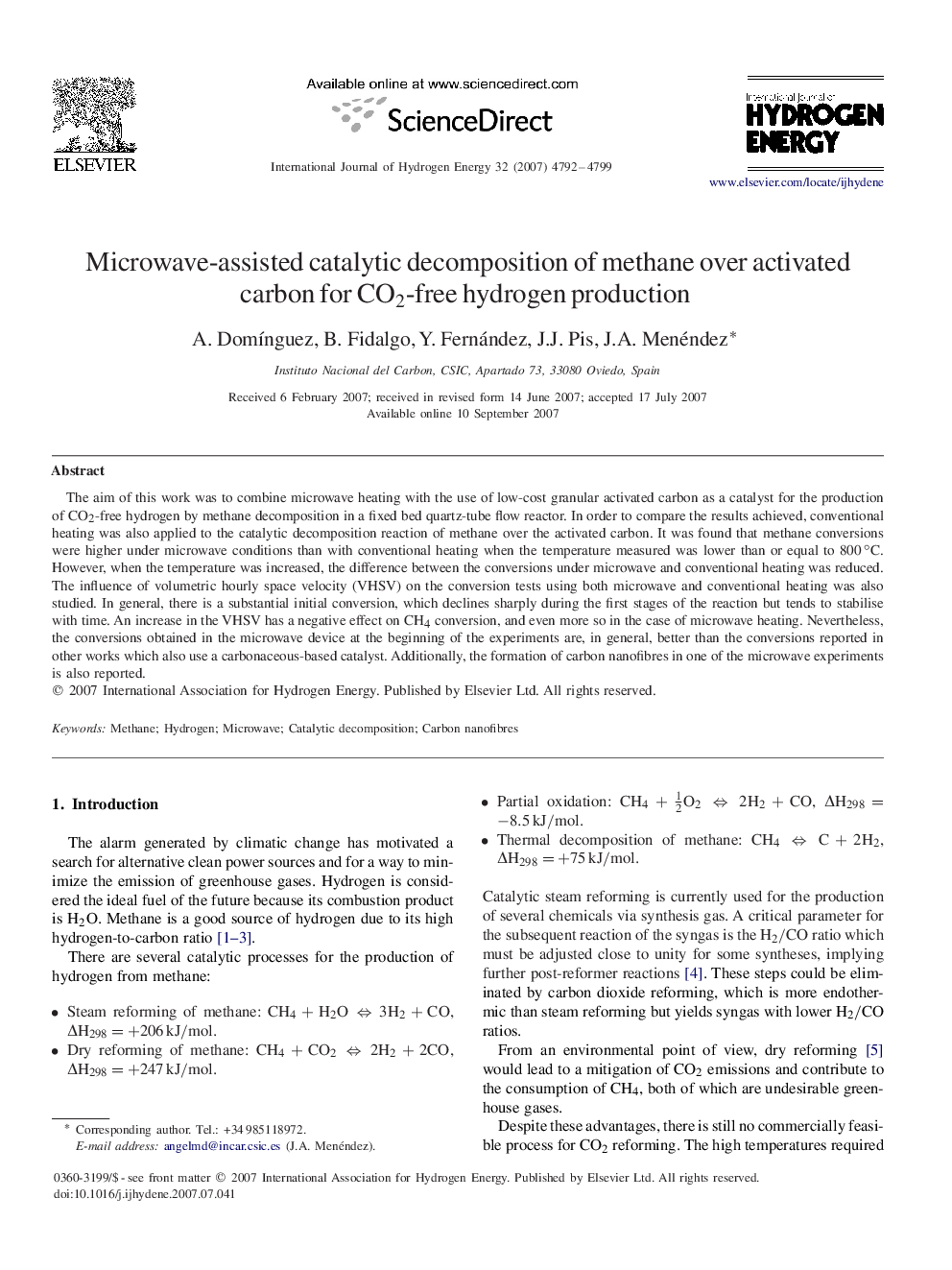| Article ID | Journal | Published Year | Pages | File Type |
|---|---|---|---|---|
| 1283768 | International Journal of Hydrogen Energy | 2007 | 8 Pages |
The aim of this work was to combine microwave heating with the use of low-cost granular activated carbon as a catalyst for the production of CO2CO2-free hydrogen by methane decomposition in a fixed bed quartz-tube flow reactor. In order to compare the results achieved, conventional heating was also applied to the catalytic decomposition reaction of methane over the activated carbon. It was found that methane conversions were higher under microwave conditions than with conventional heating when the temperature measured was lower than or equal to 800∘C. However, when the temperature was increased, the difference between the conversions under microwave and conventional heating was reduced. The influence of volumetric hourly space velocity (VHSV) on the conversion tests using both microwave and conventional heating was also studied. In general, there is a substantial initial conversion, which declines sharply during the first stages of the reaction but tends to stabilise with time. An increase in the VHSV has a negative effect on CH4CH4 conversion, and even more so in the case of microwave heating. Nevertheless, the conversions obtained in the microwave device at the beginning of the experiments are, in general, better than the conversions reported in other works which also use a carbonaceous-based catalyst. Additionally, the formation of carbon nanofibres in one of the microwave experiments is also reported.
